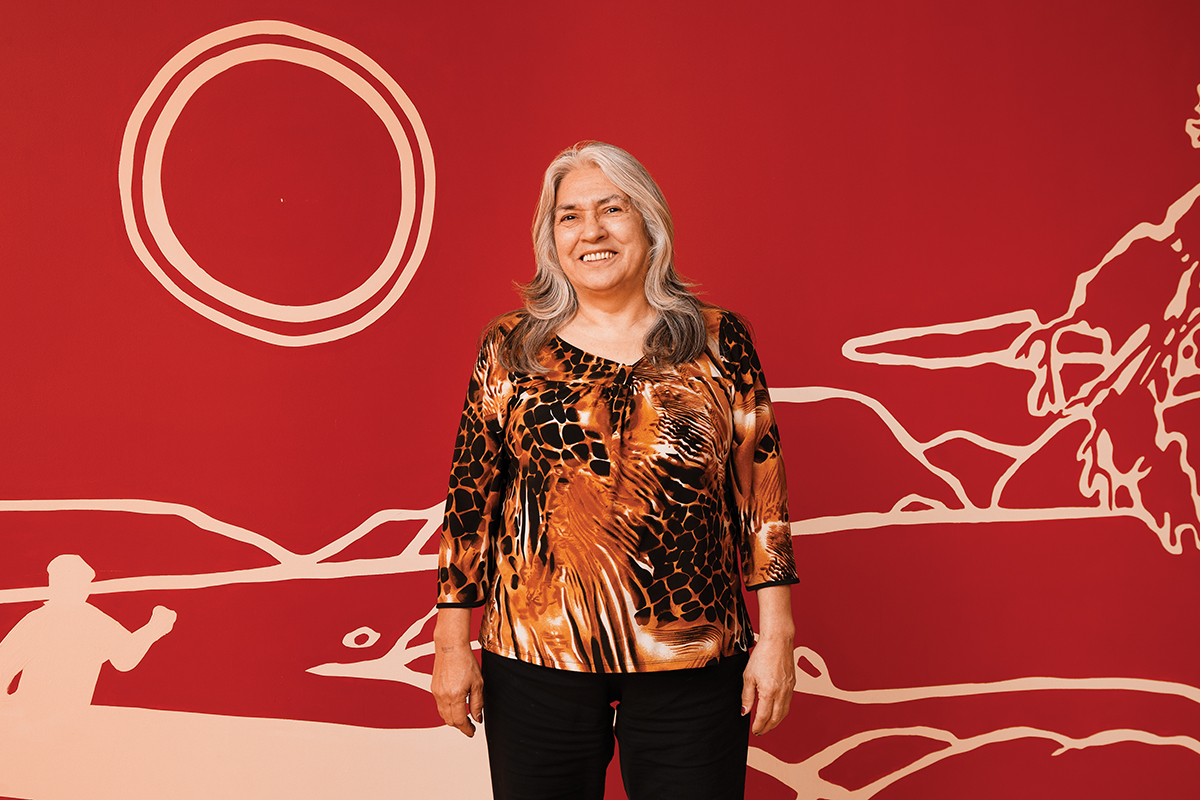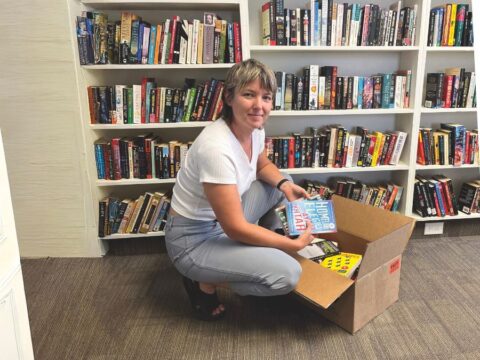Most settler Canadians haven’t had many conversations with Indigenous people, but we still feel entitled to pontificate on the “Indian problem.” Most of us know very little about the original people of this land, but we believe that they are “broken” and that we can help to “fix” them. Two new books, Lee Maracle’s My Conversations with Canadians and Arthur Manuel’s The Reconciliation Manifesto, suggest that Canadians need to stop presuming and start listening.
Maracle, an award-winning Salish poet and novelist, invites us to join her for a conversation around the old oak table in her kitchen. Maracle talks. We listen.
You may unsubscribe from any of our newsletters at any time.
That there’s no opportunity to interject, no chance to proclaim our innocence as Canadians or to offer “helpful” solutions, is part of the point. Where readers expected a dialogue, they find a diatribe. But Maracle’s ironic thwarting of our expectations makes one thing clear: to date, the “conversation” in this country has been controlled by the settlers in the room. We’ve occupied the position of the “Knower’s Chair,” as she calls it, for far too long.
Unfortunately, the rhetoric of reconciliation merely extends this legacy. It claims collaboration and conversation, says Maracle, while refusing to acknowledge Indigenous rights or fulfil settler obligations.
That readers are invited into Maracle’s home, a co-op that she shares with other Indigenous women, is no small symbolic gesture. As Maracle’s guests, we need to respect the house rules of our host — something settlers have historically been bad at. The house isn’t ours to do with what we want. How can we be better guests? How can we be less arrogant, less belligerent, less presumptuous, less greedy?
As settler Canadians, we’ve forgotten our manners. We’ve neglected our obligations and responsibilities to the people who first agreed — or rather, were forced — to share the land with us. But Maracle doesn’t say it quite like that. She is funnier and more gracious.
She tells a story of how she was approached by two young women offering her cereal while she was reading a newspaper at the corner of Bloor Street and Spadina Avenue in Toronto. She was mystified when they said to her, in kindergarten-teacher voices, “Here is some more, you can share it with your friends.” But she took the cereal all the same. In Stó:lō culture, one takes what one is offered; to do otherwise is to insult the person making the offering. Her colleagues at the University of Toronto roared with laughter when they heard her tale later that day. “‘Lee, they thought you were homeless,’” she recalls. “And they thought that was a riot — a famous, award-winning author accepting cereal along with the homeless Indigenous people at Bloor and Spadina.”
Maracle’s wry take on a history that is nothing short of horrifying gets us to laugh, if uneasily, at how we have mistaken our roles. We have seen Indigenous people as vagrants while forgetting that we are visitors to this land here at their goodwill.
This is more than metaphor. As a colonial country, Canada has obliterated the homes and communities of Indigenous people. When Maracle’s grandfather was a boy, the longhouses in his village were burned to the ground by white men who told the people to replace the destroyed structures with single-storey family units. Maracle’s mother was dispossessed of her home by a segregationist bylaw prohibiting any “Indians, Jews, Blacks or Asians” from residing in North Vancouver. Today, protests against the ecological devastation of Indigenous land are often met with police brutality.
By inviting us into her home, Maracle reminds us that we inhabit someone else’s space. We come to see that maybe we are the problem and that reconciliation is not a solution — not without restitution. “Return our lands, and then we can talk about being friends,” says Maracle. In other words, we need to gather around the negotiation table before we can really sit around the kitchen table.
The late Secwepemc activist Arthur Manuel would agree. In what is perhaps the most trenchant critique of reconciliation to date, his book The Reconciliation Manifesto, published shortly after his death last January, argues that it is more sentimentalism than substance.
“When politicians like [Prime Minister] Justin Trudeau speak about Indigenous peoples, they invariably use relationship language, like they are discussing a failed marriage. They offer mea culpasfor Canada’s past behaviour and call for reconciliation, as if all that was needed was a bit of counselling, an ‘honest conversation.’” It’s not enough, he insists. As a settler, you can’t attend powwows and say you are working for reconciliation unless you are also fighting for Indigenous rights to self-determination and land. “The remedy is not apologies and hugs but recognition and restitution.”
Manuel gives us a path — a six-step decolonization process — for moving toward a better future for Indigenous people and settler Canadians.
First, he warns us to put on our “hip waders” as we prepare to plod through the “legal slog” of Indigenous law. This is not light reading, but it is necessary.
By the time we get through the pages upon pages of detailed descriptions of Canadian legislation, policy-making and court rulings, we realize that the reconciliation currently being championed is a false version that uses Orwellian doublespeak to conceal how the government is merely continuing with business as usual. The flouting of Supreme Court rulings and international agreements is defended out of one side of our leaders’ mouths while the word “reconciliation” is invoked ad nauseam out the other. Real reconciliation will mean rebuilding the very foundation of our country.
What makes the late Manuel a “true visionary,” as author and activist Naomi Klein describes him in her preface to the book, is his practical vision for fighting the status quo. The only way to really change things, he says, is to exert international pressure on our country’s government, taking inspiration from black South Africans during apartheid and African Americans during the civil rights movement. Only then will Indigenous self-determination be possible.
As scary as it sounds for settlers, Indigenous sovereignty doesn’t mean secession. It would mean learning to truly share what is currently defined as the Canadian space.
Today, we can’t seem to share the same table. Maybe one day we will learn to share the land.
This story originally appeared in the January 2018 issue of The Observer with the title “Don’t talk. Just listen.”














